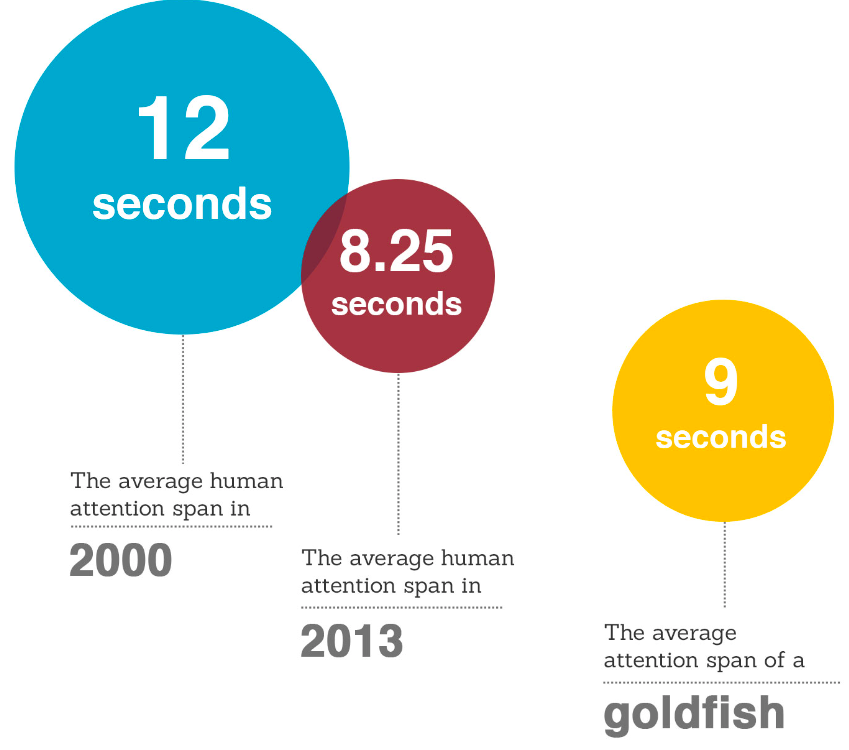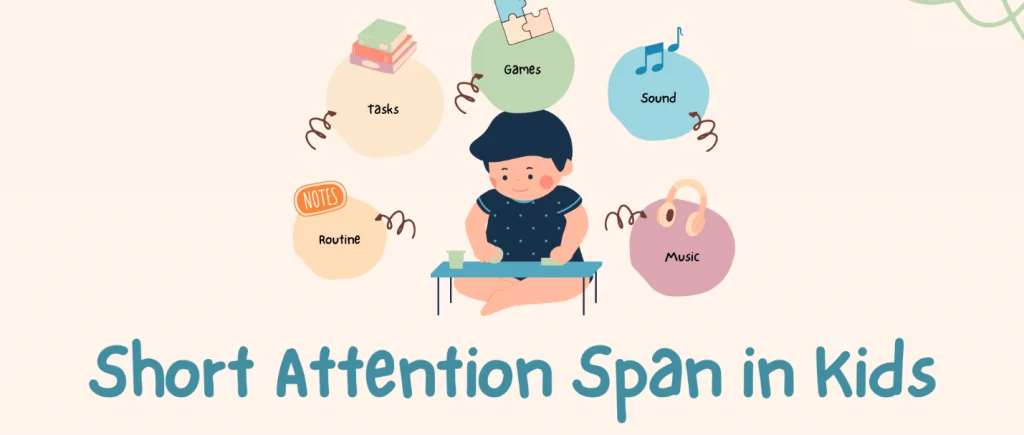Engaging in focus exercises can enhance your child’s ability to concentrate and manage their time effectively, leading to increased productivity.
Does your child struggle to focus on certain tasks because they are easily distracted?
Children have a tendency to become sidetracked about almost anything. It might be a fly, some scissors close by, or a distant dog barking.Their thoughts appear to move quickly between ideas.
It’s true that our brains are incredibly good at focusing.Naturally, though, there will be moments when you lose focus and stray from your intended course.
It is normal for everyone to experience this. Research has revealed that the brain’s default mode is mind-wandering.
Of course, there are moments when it’s acceptable for your mind to wander, but not when you have crucial tasks to complete.
Thus, continue reading to learn the advantages of concentration exercises and precisely how to begin if you’re searching for a solution and a better way to stay on course.
Benefits of Focus exercises
Enhancing your brain’s capacity for concentration has numerous advantages. Your ability to focus can inspire you to set new goals and improve your mental and self-esteem. You’ll feel strong when you know you can concentrate on the goals you’ve set for yourself.
The following are some advantages of engaging in concentration exercises:
- Have faith in your skills: You learn to trust yourself when you can concentrate. You can be sure that you won’t give in to distractions or procrastinate.
- Increased self-confidence: You’ll get more done faster if you can focus better. This implies that even under pressure from tight deadlines, you’ll feel confident taking on new assignments.
- Handling complexity: Compared to writing a research report, dishwashing requires less focus. Your ability to focus will improve as you tackle increasingly difficult and intricate tasks.
- Enhances emotional regulation: Mindfulness, which is enhanced by concentration, aids in understanding and managing emotions. Enhancing your ability to regulate your emotions improves your demeanour and professionalism.
- Enhances performance: Research indicates that providing physical exercise as a focus exercise can help children and young adults with attention deficit hyperactivity disorder (ADHD) have longer attention spans. When learning new information came after engaging in vigorous physical activity, students with ADHD did better academically.

How to Improve our Child’s Focus and Attention span?
I am aware that you frequently witness your child not paying attention. You want to find out how to help them become more attentive or how to help them focus and concentrate.
1. Integration of Mind and Body
Asking your child to sit in a chair and seeing how long they can stay still is the goal of this activity. Your child should strive to surpass their record each time they perform this exercise, which should be done often.
Your child’s self-control will improve with small improvements because “the neural connections between the brain and body are strengthened.”
For teachers who want to assist a distracted student, this is a great exercise.
One way to practise this method is to have your kids try to sit still in a chair. How long the child can do this is multiplied by the parent. Improvement will be evident after several weeks of consistent practice. Better self-control is achieved by strengthening the neural connections between the brain and body through this activity.
2. Practice Belly Breathing
The Medical Dictionary defines abdominal breathing as “respiration in which the abdominal wall muscles perform the majority of the work.”
By compressing the contents of the abdomen, this breathing technique raises the diaphragm to expel air. Other names for it include “belly breathing” and “diaphragmatic breathing.”
This kind of breathing because it’s healthy for all people. Studies have indicated that it can either lower or stabilise blood pressure and slow the heartbeat.See the Harvard Medical School to find out how to practise abdominal breathing.
Kids can benefit from belly breathing when faced with difficult tasks. They may become more agitated during these, which will cause their heart rate to rise.
Recall that “concentration is the opposite of anxiety, which leads to avoidance.”
3. Engage in Games of Concentration
Engaging your child in concentration games, like memory games, puzzles, or spot the difference, can significantly enhance their focus and attention span.
These seem like basic tools, but they’re really helpful for kids with ADHD. Crossword puzzles enhance word recognition and sequencing skills. Similar to this, picture puzzles that require your younger child to find objects that are difficult to find or to identify items that are “wrong” in the picture help them focus and pay attention.
4. Coin Game
This game is popular among parents because it enhances concentration and attention spans, memory, and sequencing. Additionally, kids find it enjoyable because it moves quickly.
To begin, gather:
- a small pile of different coins,
- a cardboard sheet,
- and a stopwatch
Pick five coins at random from the pile and arrange them in order.
Ask your child to examine the coins that are arranged on the table very carefully now.
Next, place the cardboard over the coins. Set a timer and instruct them to use the coins in the pile to form the same pattern. When they’re done, take off the cardboard cover and use the timer to record the time. Note how long it takes them to finish the pattern and if their answers are accurate. Encourage your child to try again until they can complete it correctly if they don’t succeed the first time.
As you progress, you can make the patterns harder. The more your child plays, the better their sequencing and focus will be, which will benefit you both immensely.
5. Games and Stories
All you need to play these games is your imagination and a good storybook. You could just read the child a short story and then give them a pop quiz on the subject. Alternatively, you could read a few paragraphs from a story to your child and ask them to speculate as to what they think might happen next.
Give instructions to maintain the content’s connection to the original narrative. Once your child has expressed what he believes will happen next, you can add your own interpretation.
Try to trade back and forth as much as you can to see what you come up with.
Playing these games promotes focus and working memory development. Additionally, they can aid in the growth of reasoning and humour.

Assist Your Child in Developing Better Focus and Attention
It’s acceptable that children have short attention spans. However, we can assist them by providing exercises that enhance focus and attention span.You’re doing them a great favour, for example, by playing concentration games!
Engage in play and storytelling activities to help them develop their focus and sharpness as well as lengthen their attention span.
Work with your child on these brainteasers, acting as a coach for them.
As they get better, reward them and monitor their development. Collaborating is a mutually beneficial solution as it enhances your bond with your child.
Now go ahead and enjoy yourself. Participate in the exercises with your child. Who knows, maybe your brain will function a bit more quickly and intelligently as well!

